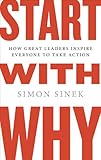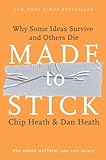
This is one of the few books that I recommend to traders regardless of
their expertise. There's something valuable in here for novice traders,
and perhaps even more for experienced traders.
The book was written by Brian Shannon. He is a professional trader; and he has developed quite a following on Twitter under the name "AlphaTrends".
Over the years, I've read many books about trading, the markets, and psychology. This book is a very nice combination of those topics, with some common sense thrown in for good measure.
What is in the Book?
The book starts by explaining some basic technical analysis concepts, like trends, moving averages, and support & resistance levels. Next, Shannon explores some of the common volume and market patterns (dealing with what to expect, and why it happens that way).
He also talks about the four stages of a stock's economic cycle.
Whether you call it expansion, peak, decline, and recovery ... or ...
accumulation, mark-up, distribution, and decline ... these four stages
show-up repeatedly, in different stocks and on different time
frames. Recognizing these cycles, and what they mean, is a good step forward in understanding the markets and which techniques are most
likely to work in a particular market condition.
The Disciplined Trader.
Along the way, he also does a nice job pointing out some of the nuances of trading, from risk management to exit strategies. This is a book that balances opportunity with defense and discipline.
I appreciate that the book focuses on the risk management side of trading, and doesn't pretend that there are magic indicators or trading systems. He stresses that risk management and position sizing are more important than what you choose to trade.
More Than Patterns: The Entry and Exit Matter Too.
Shannon states that his edge is based on observing the market clearly and objectively, then implementing trades based on what the market dictates. He teaches to initiate a trade only when you have a perceived edge and the price action confirms your theories.
He warns that the most difficult job on Wall Street is
picking tops and bottoms. There are lots of lower risk ways to trade. For example, while trend following is one of the techniques he advocates, he explains how using multiple time frames helps you identify trend alignment, which you can then use to help place trades during situations where you have a better edge.
Common Sense Insights About the Markets Isn't as Common You Might Hope.
As Shannon describes the different patterns, he does a nice job of
providing charts and narrative to explain what's happening, what some
buyers might be thinking, and why he takes (or avoids) trades at
different points in time.
He cautions that the market is not always rational and "reasons" are often revealed only after price has moved.
I like that reading this book feels like you're having a conversation
with someone who really knows what they're talking about. And as you
get further through the conversation, you realize that you're making
progress, learning new things, making new distinctions, and putting
things together in a way you hadn't thought of before.
This book doesn't talk down to readers; yet, it doesn't try to dazzle them either. It's well-written, balanced, and full of practical ideas and insights.
Bottom Line, it's certainly worth reading.
In addition, click the picture below to watch a recent video he did about what's happening in the market. It is a nice example of his trading style.
 Other Resources:
Other Resources:





![Reblog this post [with Zemanta]](http://img.zemanta.com/reblog_c.png?x-id=316fc233-ee35-4a4b-a801-84bfac5e82d1)
![Reblog this post [with Zemanta]](http://img.zemanta.com/reblog_c.png?x-id=9593af3c-6600-4142-849b-4c6ee6f94fcd)

